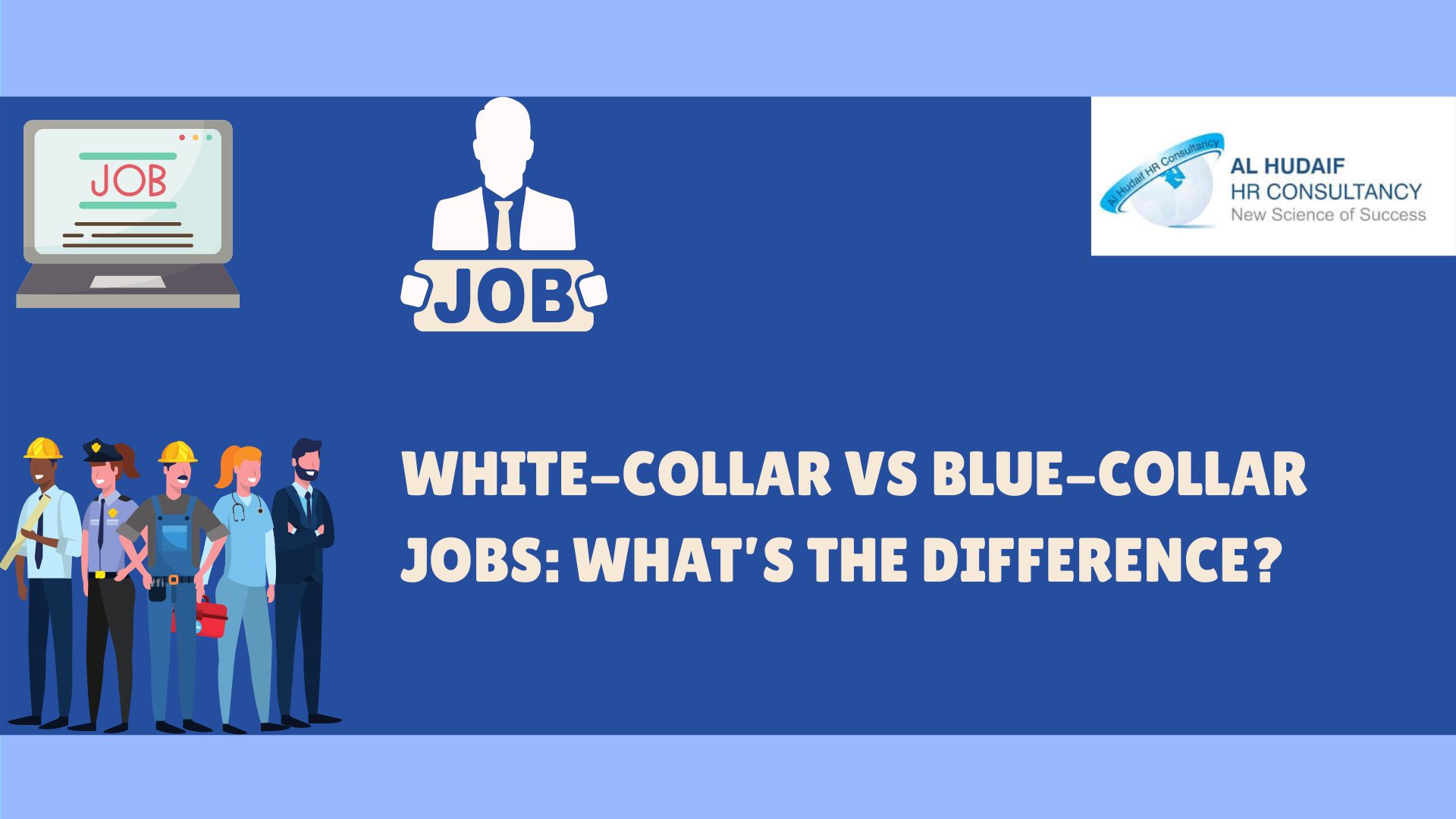When exploring career options or understanding job markets, you may often hear the terms white-collar and blue-collar jobs. These labels go beyond just dress codes—they reflect the type of work, skill sets, and industries involved. Whether you’re entering the workforce, considering a career change, or just curious, knowing the difference between white-collar and blue-collar jobs can offer valuable insight into how various professions are structured. In this blog, we’ll break down what each term means, highlight key differences, and explore how both play essential roles in the economy.
Blue Collar Job: Everything You Need to Know
When someone hears the term “blue collar job,” they might picture a construction worker, a mechanic, or someone working with their hands. But the reality is much more diverse and nuanced. Blue collar jobs form the backbone of any economy, providing essential services that keep society running smoothly. From electricians powering up your home to truck drivers moving goods across the country, these roles are indispensable.
In today’s world, the phrase “blue collar job” represents more than just manual labor—it’s about skills, stability, and practical careers that don’t always require a four-year college degree. As the workforce shifts and the need for skilled trades grows, blue collar jobs are gaining newfound respect and attention. They offer not just a paycheck, but a sense of purpose and achievement.
Whether you’re considering this path for yourself or simply want to understand what it entails, this comprehensive guide will walk you through everything you need to know about blue collar jobs. Let’s dive into the details.
What is a Blue Collar Job?
The Meaning Behind Blue Collar Job
A blue collar job typically refers to a type of employment that involves manual labor. These roles are often associated with industries like construction, manufacturing, mining, maintenance, and transportation. But it’s not just about physical work—many blue collar jobs require specialized training, apprenticeships, and years of experience.
The defining trait of a blue collar job is hands-on work. Unlike white collar jobs that are mainly office-based, blue collar roles happen on-site, in factories, outdoors, or in specialized facilities. You might be repairing HVAC systems, welding metal structures, or operating heavy machinery. The spectrum is wide, and each role plays a critical role in our day-to-day life.
What makes blue collar jobs especially valuable is that they often don’t demand a traditional college degree. Instead, they reward experience, skill, and a willingness to work hard. With rising college tuition costs and uncertain job prospects for degree holders, blue collar paths are becoming increasingly attractive for many job seekers.
How Blue Collar Job Got Its Name
The term “blue collar” dates back to the early 20th century. Workers in manual labor roles commonly wore durable, blue-colored shirts or uniforms made from denim or chambray. The color was practical—it helped hide grease, oil, and dirt accumulated during a workday. In contrast, “white collar” workers wore dress shirts and worked in clean, office settings.
Over time, “blue collar job” became shorthand for any role that involved physical labor, regardless of the uniform. It’s worth noting that the color distinction no longer strictly applies to clothing but remains a useful way to describe the type of work performed.
Today, the phrase still holds cultural weight. It symbolizes strength, reliability, and the everyday hustle that fuels our cities and towns. It also highlights the value of workers who often go unnoticed but are essential to our way of life.

Different Types of Blue Collar Job Roles
Skilled Blue Collar Job Opportunities
Skilled blue collar jobs are the cream of the crop in the trades world. These positions require specialized knowledge, technical training, or certification. Think electricians, plumbers, welders, and HVAC technicians. These workers go through rigorous apprenticeships or vocational programs and often earn licenses to perform their jobs legally and safely.
These roles offer long-term career growth and often come with excellent pay. Many skilled blue collar jobs can lead to entrepreneurship. A licensed electrician, for example, might start their own contracting business after gaining experience. What makes them so attractive is that they combine stability, high demand, and the ability to build a prosperous future without sinking into student debt.
In many industries, skilled tradespeople are in high demand, often more so than college graduates. The shortage of skilled workers means that wages are competitive and job security is strong. So, if you’ve got a knack for fixing, building, or problem-solving, a skilled blue collar job could be your golden ticket.
Unskilled Blue Collar Job Roles
On the other end of the spectrum are unskilled or entry-level blue collar jobs. These roles typically don’t require formal education or training, making them ideal for those just entering the workforce or seeking a career change. Common examples include warehouse workers, janitors, landscapers, and delivery drivers.
Don’t let the term “unskilled” mislead you—these jobs still require effort, dedication, and on-the-job learning. Over time, workers can move into supervisory roles or shift into skilled trades with additional training. These jobs are essential, providing vital services that support larger systems and industries.
What’s great about starting in an unskilled blue collar job is the opportunity it provides to “learn and earn.” You gain experience while getting paid and can gradually acquire new skills or certifications. For many, it’s the first step toward a fulfilling long-term career.
Frequently Ask Question
1. What is considered a blue collar job?
A blue collar job typically involves manual labor or skilled trade work. These jobs are commonly found in industries like construction, manufacturing, automotive, electrical, plumbing, HVAC, and transportation. Workers often perform hands-on tasks and may wear uniforms or protective gear. The term is used to distinguish such roles from “white collar” office or administrative jobs.
2. Do blue collar jobs pay well?
Yes, many blue collar jobs offer competitive wages—some even pay six figures with experience or certifications. Trades like electrician, plumber, elevator technician, and power plant operator are known for their high earning potential, especially in regions with strong demand and labor shortages. Union jobs also tend to offer excellent pay and benefits.
3. Do I need a degree for a blue collar job?
No, most blue collar jobs do not require a traditional four-year college degree. Instead, many require trade school training, vocational education, certifications, or apprenticeships. This makes blue collar careers attractive for those who want to avoid student loan debt and enter the workforce quickly.
4. Are blue collar jobs only for men?
Not at all. Although historically dominated by men, blue collar jobs are increasingly being filled by women. With more inclusive hiring practices and outreach programs, women are entering fields like welding, electrical work, and mechanics. Gender should never be a barrier to pursuing a skilled trade career.





You must be logged in to post a comment.